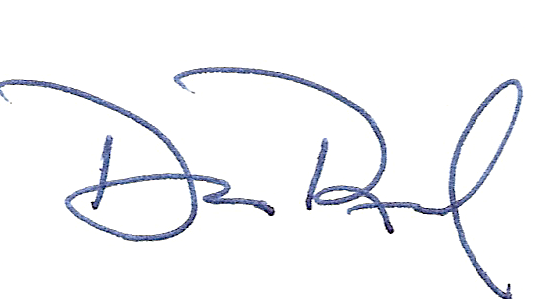
– Don Reed, CEO
DealerPRO Training
“The principle that 80 percent of effects come from 20 percent of causes relates has direct applications for a dealership’s fixed operations.
“Research shows that a properly managed service department should maintain a net profit of at least 20 percent of gross profit, which means 80 percent of gross profit is consumed by expenses — hence the 80/20 Rule.”
How True Is This?
The 80/20 Rule originated in 1906 from an Italian economist named Vilfredo Pareto, who observed that 80 percent of the land in Italy was owned by 20 percent of the population. He then developed the 80/20 principle by observing that 20 percent of the pea pods in his garden contained 80 percent of the peas. Therefore, Pareto came to the conclusion that for many events about 80 percent of the effects come from 20 percent of the causes.
In today’s business world, the Pareto Principle (80/20 Rule) applies in many ways. Here are a few examples as reported in Wikipedia:
- 80 percent of your profits come from 20 percent of your customers
- 80 percent of your profits come from 20 percent of the time you spend
- 80 percent of health care resources are consumed by 20 percent of the patients
- 80 percent of crimes are committed by 20 percent of the criminals
- 80 percent of a company’s output is produced by 20 percent of its employees
The list goes on and on and on. So, what does this rule have to do with RV fixed operations? How about net profit?
Where Do You Stand?
Chances are, if you are managing a service operation with a 20 percent net to gross you are most likely a member of the Top 20 percent list for top-performing managers in the RV industry. At RVDealerPro Training, we have evaluated dozens of dealership service and parts departments by analyzing their performance over the past 24 months, and we find at least 80 percent of those service departments are producing net profits well below that 20 percent benchmark – hence the 80/20 Rule once again.
Sometimes the 80/20 Rule will be modified due to certain variables in different departments, such as in a parts department, where we find the rule might change to a 70/30 Rule, meaning that a properly managed parts department should average a department net profit of no less than 30 percent net to gross. Divide your department net profit by your department gross profit to see how you stack up with the top performers in our industry. This will enable you to determine where your opportunities for improvement are so that you can then develop your plan for change.
Opportunities for improvement can be found in three areas:
- Expenses are too high
- Gross profits are too low
- Both of the above
Our research shows that most dealers are doing a credible job in controlling their expenses. However, most are doing a below average job in generating maximum gross profits due to declining or stagnant retail service traffic and declining sales per repair order.
Your Best Year Ever?
To begin with, if your expenses are in line with industry guides, then will you agree that you “can’t save your way into more profit?” Obviously, there will always be a limit to what and how much you can cut in expenses, so let’s focus on increasing sales and gross profits.
Let’s calculate how the 80/20 Rule can positively affect profits in the following example of an average dealership, using the following assumptions:
- 500 customer pay repair orders per month
- Average HPRO @ 1.4
- Labor gross profit @ 75 percent
- Parts gross profit @ 40 percent
- Effective labor rate @ $85
- Parts to labor ratio @ 90 percent
Simple Upsell Creates Big Profits
If your service advisors simply “advised” all 500 customers of an additional maintenance service from a maintenance menu and/or additional repairs recommended by their technician from the multi-point inspection, 20 percent of the customers will say “yes” and 80 percent will say “no” without any further selling or efforts to overcome objections. In other words, 20 percent of your customers will say “yes” if you just give them the opportunity!
That equals 100 upsells, which will produce about 100 additional hours sold. Based on the above assumptions, that increases hours-per-repair order by 0.2 – increasing sales by about $16,000 – and improving gross profits by $10,000, which now adds another $120,000 in additional gross profit for the year.
If this store is already profitable, net profit will increase by about $100,000 after deducting $20,000 in variable selling expenses from the $120,000. If this store is currently losing money, then it just took a big step toward breaking even or actually making a net profit.
Now, what do you think would happen in the above example if the service advisors were properly trained on how to make a feature/ benefit presentation to these same 500 customers to properly advise them of the safety-performance-economy-reliability benefits of properly servicing their RV? Answer: The 80/20 Rule will become the 60/40 Rule, with 200 upsells producing another $20,000 per month totaling $240,000 per year. Understand that if I’m wrong by 50 percent, you still make an additional $120,000 for the year!
Now, if you’re thinking all this is “Fantasyland” then you are dwelling in the land of underachievers. A properly trained service advisor will outperform one who has had no training, all day long.
If you can simply convince your management team to properly train your service advisors and then hold them accountable for following this 80/20 Rule strategy, your net profits will soar.
Daily Means Every Day
Unfortunately, we find that far too many dealers and managers do not hold their people accountable for following these consistent processes, nor do they measure their performance every single day. If you don’t measure their performance daily then how can you effectively hold them accountable?
Next, once you measure their performance, you must have a pay plan that will compensate them fairly based on their individual performance. Remember: When performance is measured, it improves, and when it is pre-planned and measured it improves at a faster rate.
Simply put, managers, service advisors and technicians must have goals! Those goals must be in writing and must be measured and reviewed daily.
In a previous article I wrote for RV PRO, I offered to share some sample compensation plans with you and many of you responded to that offer, so I’ll make it again. If you need help with pay plans or daily reports, simply send me an email, at dreed@dealerprotraining.com.
If you made a previous request and you did not by chance get a response please contact me again. There is no charge for this.
Unfortunately, we find that far too many dealers and managers do not hold their people accountable for following these consistent processes, nor do they measure their performance every single day. If you don’t measure their performance daily then how can you effectively hold them accountable?
Compensate to Motivate
Remember: You should “compensate to motivate”. That goes for managers, service advisors and technicians. If you follow my strategy, outlined above, I guarantee your technicians’ productivity will increase substantially, along with your sales per repair order and customer satisfaction.
The 80/20 Rule exists in every dealership, whether you believe it or not. Every one of you reading this article has the ability as well as the opportunity to improve your performance.
To do so, you must make the commitment to leave your comfort zone and start doing some things differently and also doing different things. Remember this: If you want something you’ve never had you must be willing to do something you’ve never done.
For most of you, a net profit at 20 percent of gross profit in your service department and 30 percent in your parts department will make this your best year ever in fixed operations. For you top performers who are already doing that, welcome to the “Top 20 Percent Club”!
Call Don Reed toll free at 1-888-553-0100
Or email dreed@dealerprotraining.com.

Don Reed
CEO--DealerPRO Training
